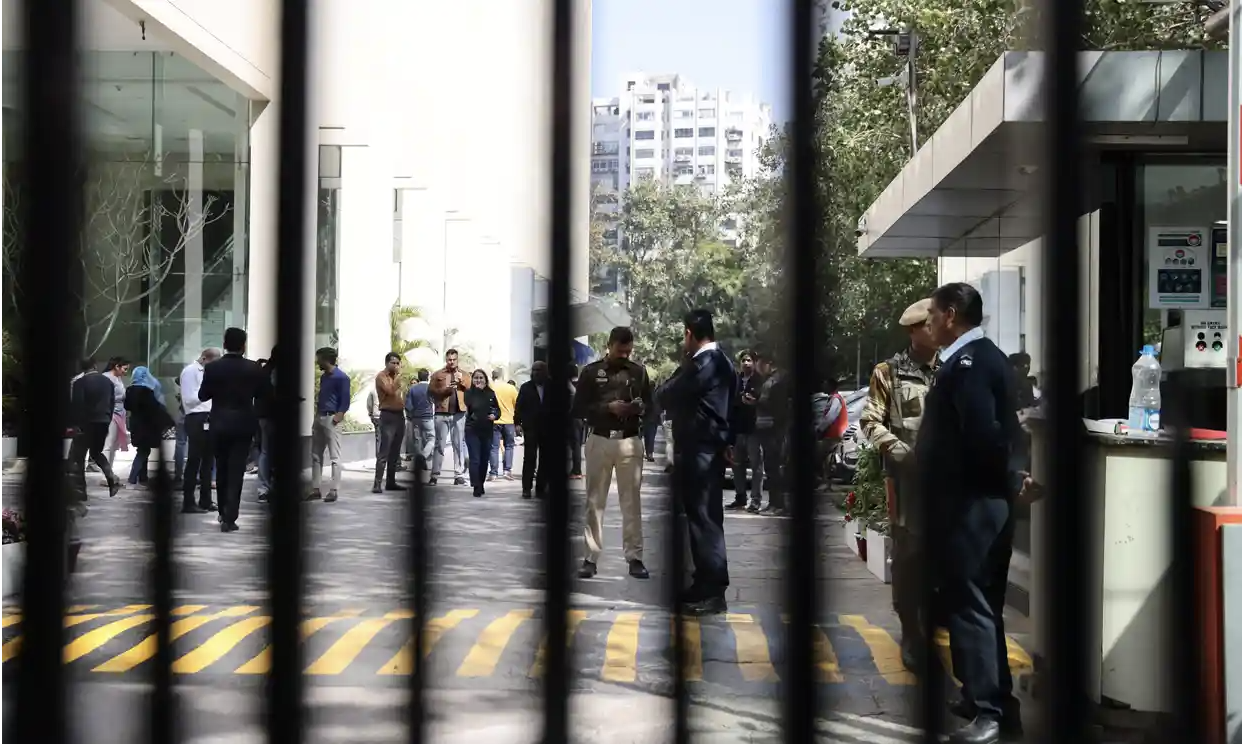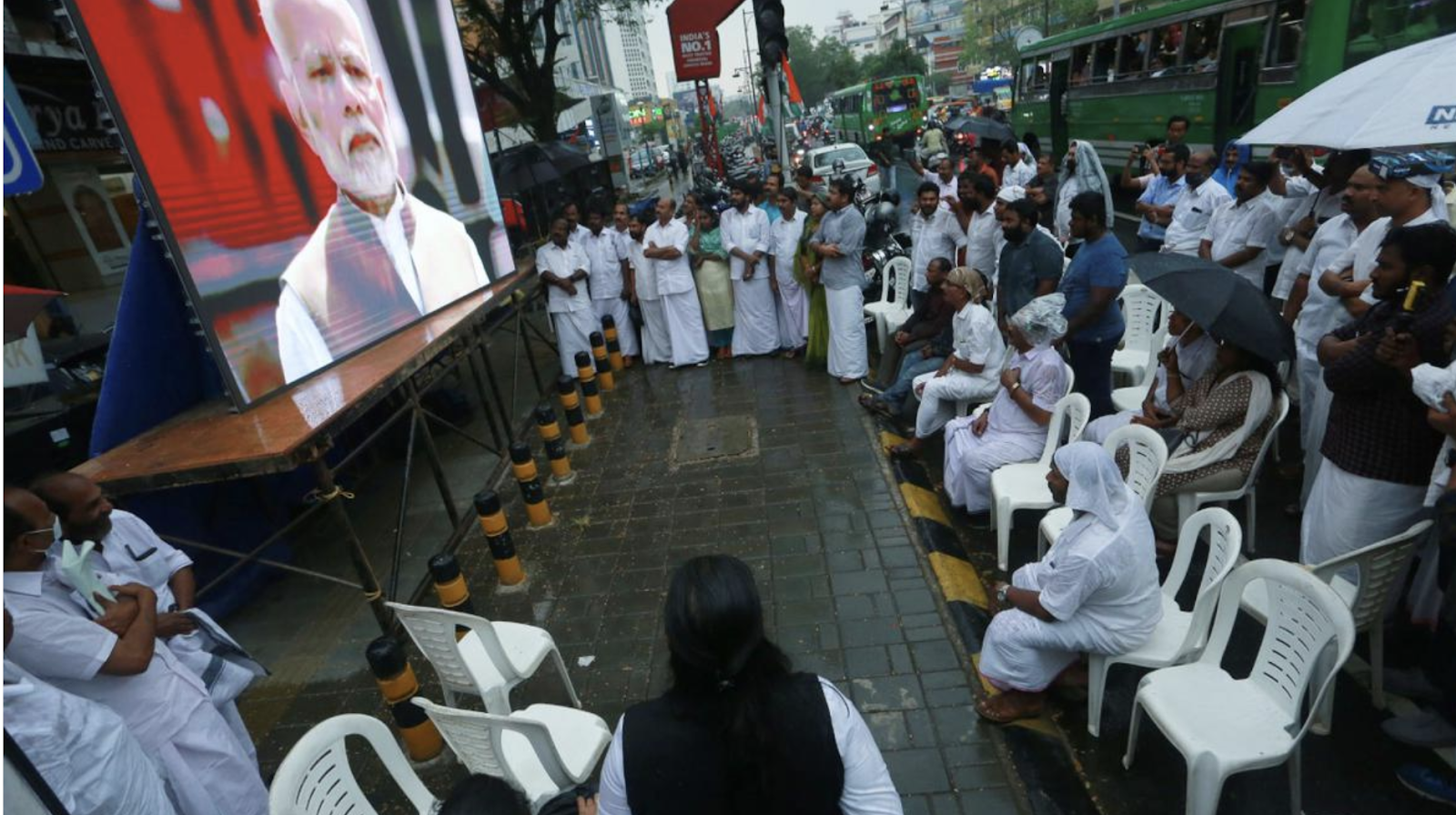BBC headquarters raided by Indian Tax Officials after Documentary on Modi
Tax officials enter BBC offices in Delhi to investigate financial irregularities Photo: Anushree Fadnavis/Reuters
The Indian income tax department conducted raids in BBC’s Mumbai and Delhi headquarters on Tuesday Feb. 14, alleging tax evasion. This comes at the heels of a new BBC documentary, India: The Modi Question, highlighting PM Modi’s role in one of India’s deadliest communal riots.
The tax department investigated BBC offices over three days under the pretext of misappropriation of profits and irregularities in transfer pricing. During their search, officials from the bureaucracy allegedly confiscated employees’ gadgets and financial documents.
Opposition leaders were quick to condemn the raids, claiming that it was a vindictive move to get back at the BBC for airing negative coverage on PM Modi. In a similar vein, The Editors’ Guild of India published a strongly worded statement against the “trend of using government agencies to intimidate or harass press organizations that are critical of government policies.”
The documentary, “The Modi Question,” released by BBC in the third week of January, states that the British Embassy Investigation held PM Modi, the then Chief Minister of Gujarat, “directly responsible” for the strife that broke out in Gujarat in 2002 which left more than a thousand people dead. Amongst other things, critics of PM Modi blame his administration for not stopping violence against the minority Muslim community.
After the documentary’s airing, the government quickly removed access to the video on the internet using the emergency powers bestowed in the Indian Information and Technology Act. This led to an outrage on college campuses nationwide, with students openly defying government mandates and holding viewings, leading to several arrests.
Opposition party leaders air BBC Documentary in Kerala in defiance of the government ban Photo: R.K. Nithin
The government justified its stance stating that the documentary was an attempt to defame India and a reflection of a “colonial intoxication.” They argued that the BBC’s report had no standing since PM Modi had been exonerated against charges of mishandling riots by both investigative agencies and India’s highest courts. Another BJP spokesperson implied that the documentary was bound to cause “unrest” and was timed to coincide with India’s first chairing of the G20, derailing the country’s opportunity for international leadership.
The BBC, in response, has reiterated that the documentary was “rigorously researched.” BBC’s Director General, Timothy Davie, also rallied behind the staff at the Indian office, acknowledging their resilience and adding that “nothing is more important than our ability to report without fear or favor.”
The face-off between the government and the BBC was also brought up in the United Kingdom’s House of Commons, where the opposition Labor Party condemned the treatment of BBC journalists during raids. The incumbent Conservative Party leaders did not contest these claims, saying, “We stand up for the BBC.”
It remains to be seen if the raids on the BBC and the remarks of BJP spokespersons have impacted bilateral relations. The UK and India are on the brink of signing a free trade agreement, with the seventh round of negotiations happening just days before the raids. The deal, slated to be clinched in October 2022, ironically got pushed back after UK Home secretary Suella Braverman disparagingly termed Indian immigrants as “overstayers,” offending Indian officials.


